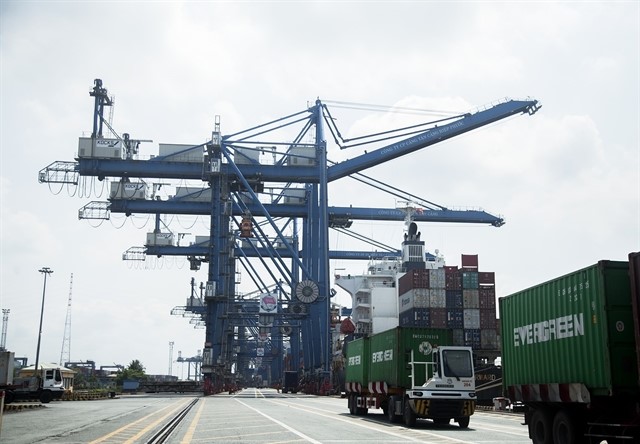In its 2023 Annual Consultation Report on Việt Nam released this week, AMRO suggested a recalibration of policies to support growth while ensuring financial stability.

Việt Nam's economy is forecasted to strengthen in 2024, with a growth rate expected to reach 6.0 per cent, up from 5.1 per cent in 2023, on the back of improving external demand, a pickup in domestic demand and robust foreign direct investment FDI inflows, according to the ASEAN+3 Macroeconomic Research Office (AMRO).
In its 2023 Annual Consultation Report on Việt Nam released this week, it suggested a recalibration of policies to support growth while ensuring financial stability.
Recent developments indicate a rebound in Việt Nam's economy in the second half of 2023, with expectations of moderate growth in 2024. Factors contributing to this include increased external demand driven by the US retail market, recovery in the global semiconductor industry, and rising economic activity in the EU. Additionally, a surge in tourist arrivals is anticipated to boost consumption.
Inflationary pressures are expected to remain manageable due to softening domestic demand, falling oil prices and adequate domestic food production. The report forecasts a consumer price inflation rate of 3.6 per cent in 2024.
Strong FDI inflows, export recovery and increased tourist arrivals are projected to support the balance of payments and further accumulation of foreign reserves.
The Vietnamese government has implemented fiscal measures to support growth since early 2022, including tax deferrals, VAT reductions, and interest rate support. Despite these efforts, the budget deficit is estimated to be 3.7 per cent of GDP in 2023. The State Bank of Việt Nam (SBV) has cut operating rates four times in 2023 to stimulate the economy, but weak economic activity has dampened credit demand.
Key risks to Việt Nam's growth include a recession in the EU or US, slower-than-expected recovery in China, and prolonged sluggishness in the housing market. Financial sector risks stem from deteriorating asset quality, particularly in retail, small and medium enterprises (SMEs), and real estate-related loans.
Long-term challenges for Việt Nam include the slow development of manufacturing, labour shortages and rapid population aging. Additionally, Việt Nam faces vulnerability to climate change due to its coastal economic activities, urbanisation and industrialisation.
Policy recommendations include recalibrating fiscal support measures, maintaining accommodative monetary policy, and implementing macroprudential regulations to mitigate risks from the housing market. Efforts should also focus on addressing structural challenges, enhancing fiscal policy, improving the monetary policy framework and strengthening financial regulations.
Addressing legal bottlenecks and data gaps in the real estate sector, investing in vocational training, and promoting climate change resilience are essential for Việt Nam's sustainable development. — VNS





